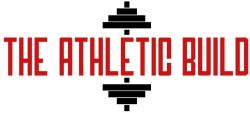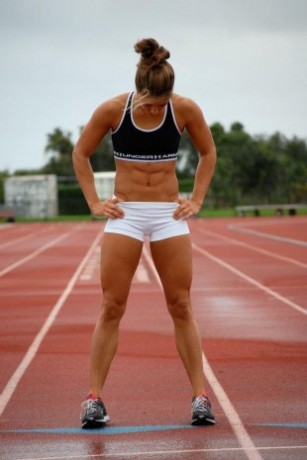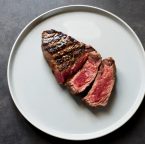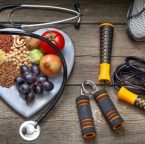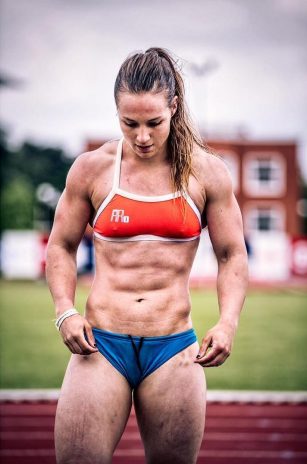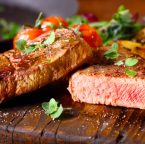A proper diet is essential if you truly want a lean athletic physique. This is especially true for athletes. Athletes typically eat more than the average person, so when they decide to lose weight, it can be much harder than someone who eats less.
We all know at least one athlete whose diet may consist of fast food and junk food, but still manages to have an extremely lean physique. There are a number of reasons for this.
The first is that they are likely endowed with a higher metabolism, which allows them to eat more calories without gaining weight. Despite their fast food habit, they may be able to maintain a lean physique due to the high level of activity they participate in – through practice and games – allowing them to consume enough calories from junk food to maintain their high metabolism.
The second is that, for most people who don’t have a naturally lean physique, junk food diets are not sustainable over the long term. A diet consisting of fast foods and junk food will ultimately cause you to gain weight because these foods do not contain the nutrients your body needs to function properly. The more nutrient deficient your diet, the hungrier you will become because your body is constantly seeking foods that are rich in nutrients. This hunger will cause you to overeat, which results in weight gain.
If you don’t have a naturally lean or athletic build, it can be extremely difficult to eat junk food and maintain a lean physique because these foods either won’t be enough to satisfy your hunger, or you’ll end up eating more than you intended because junk food often does not fill you up.
If you want to lose weight and maintain a lean physique like an athlete, it’s important that you set proper diet guidelines. Here are 10 nutrition rules for achieving an athletic build:
1. Eat Clean
This doesn’t mean you have to eat a no-carb diet or avoid fat. It simply means that, for the most part, you should opt for wholesome foods – especially those containing protein – and avoid processed food as much as possible.
I like to put it this way, if it is made by Mother Nature then eat it, if it isn’t don’t. Example: Mother Nature makes eggs, chicken, fish, fruits and vegetables – eat them. Mother Nature doesn’t make Twinkies, candy bars, pizzas, Cheetos or soda pop – avoid them.
It is as easy as that really. If you stop reading this article right here and just adhere to the eating clean principle you will be pretty well off, but please continue.
2. Stay Hydrated
As an athlete, proper hydration is important. It can even mean the difference between winning and losing an iron man event or marathon! The American College of Sports Medicine’s position stand on water replacement for athletes emphasizes that to support exercise performance, athletes should consume adequate fluids before beginning a workout as well as during the course of their workout, because failure to stay hydrated will lead to deficiencies in mood and energy.
Even salty sweaters will benefit from staying adequately hydrated if they want to perform at their best throughout a long training session or race: dehydration has been shown to decrease fluid and sodium delivery to the sweat glands and increase sweat rate and sodium loss.
Staying hydrated also helps with another important function of the body – thermoregulation. In a hot environment, if athletes get dehydrated, their heart rate increases and they start to sweat more. They may also experience impaired coordination and an increased risk of heat stroke or even heat exhaustion. This is why it is crucial for athletes to stay hydrated while exercising in a hot environment for extended periods of time.
It is also important to stay hydrated when exercising in cooler weather conditions. When it’s cold outside, athletes should wear clothes that insulate them from the cold and reduce heat loss, such as a long-sleeved shirt and pants. If an athlete is exercising in cold weather but doesn’t dress warm enough, heat loss will occur across the skin – the body’s largest organ (which is why you should always dress in layers). The more heat that’s lost, the harder it is for the body to produce heat and stay warm.
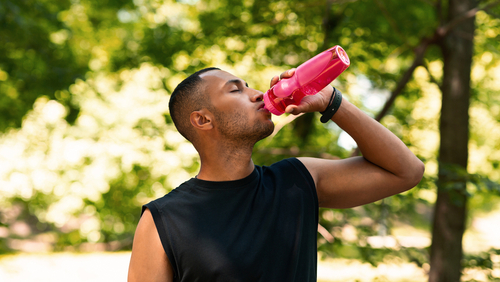
3. Eat Your Protein
Protein is the nutrient your body needs to build muscle. It’s recommended that you consume at least one gram of protein per pound of lean mass, so if you’re 200 pounds with 20% body fat (40 pounds of fat), then eat 160 grams of protein.
Be sure to get most of your protein from whole food sources like fish, lean cuts of meat and egg whites because whole food protein sources provide a greater amount of nutrients than their processed counterparts.
Focus on consuming complete proteins (proteins that contain all nine essential amino acids) at each meal to ensure your body is getting an adequate supply of the vital aminos needed for muscle growth/repair. This can be done by eating a variety of protein sources each day.
Make sure you’re also getting enough healthy fats through your diet because these are needed for optimal hormone production, which can aid in muscle growth.
Try to get at least one gram of fiber per 1000 calories consumed so that you stay full longer while maintaining ideal body weight. Foods higher in fiber have been shown to be more filling than foods lower in fiber and will allow you to eat fewer total calories without feeling hungry throughout the day.
Related: The 13 Best Foods for Building Muscle
4. Go High Fiber
Athletes need fiber for a number of reasons. First, athlete’s bodies need to maintain their digestive health and fiber is essential for both the colon and small intestine.
Athletes also tend to have higher body temperatures which means they sweat more often so if you believe that sweating out fluids may leave your system with less water then having enough fiber can be crucial as it will help keep your hydration levels on point while keeping waste moving through the body regularly.
Now a common concern among athletes is whether or not they should take any extra precautions when adding fiber into their athlete diets because some believe this could hinder performance but there are actually some helpful foods that contain soluble fibers such as those from oatmeal bread or avocado pears amongst others.
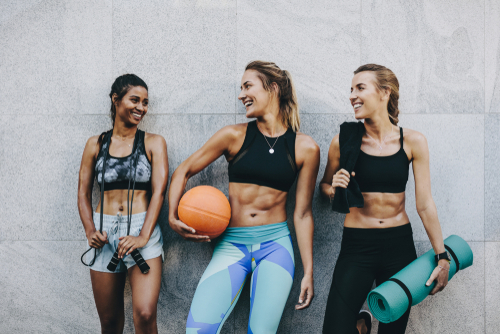
5. Use Protein Shakes
Protein shakes are a great supplement for athletes. The body needs protein to build muscle and recover from training, but it’s hard to get enough through whole foods alone – especially if you have a high-energy lifestyle that requires lots of calories. Protein supplements can be extremely useful in meeting your athlete nutrition goals!
How much do I need?
The recommended daily allowance (RDA) is 0.37 grams per pound of bodyweight per day, so someone who weighs 150 pounds technically only needs 55g every single day – which doesn’t seem like very many grams at all! However, this number assumes average activity levels; serious athletes or those looking to lose weight will need more than the RDA because their bodies are using more resources.
In general, a good athlete diet should have about 1 gram of protein per pound daily, which will be roughly 150g for someone who weighs 150 pounds – still not very many calories! Protein shakes can help you meet this requirement by providing easy access to high-quality nutrients with minimal effort and faster absorption than whole foods alone.
There are lots of different types of supplements on the market that range from purely whey proteins (which come as isolates) to casein proteins with higher concentrations of fat and carbs in them – it is important to know what exactly what type is right for your specific goals before choosing one product over another. Not all “whey protein” is the same – it can be derived from grass-fed cows, goat or even soy sources.
Many supplements also contain a blend of protein sources, like whey and casein together for an optimal amino acid profile. If you are trying to cut carbs or fat in your diet, you might want to avoid products with added sugars or fats.
Related: 15 Best Whey Isolate Powders
6. Avoid These
Simple Carbohydrates
Carbohydrates are essential for providing your muscles with energy, but not all carbs are created equal.
You should avoid simple carbohydrates like sugars and white breads because they enter the bloodstream rapidly without requiring much work from your body; this can lead to an excess amount of calories in addition to raising blood sugar levels (which is bad news for athlete nutrition).
Instead, look for complex carbohydrates that are derived from whole grains and vegetables. These carbs take longer to break down in the body, which will help you avoid quick energy highs and lows.
Keep in mind that athlete nutrition is largely about balance – try not to cut out carbs completely if you are an athlete, but do pay attention to the type of food you’re getting your carbs from.
Fried foods
Frying foods is a great way to make them taste delicious, but frying decreases the nutritional quality of your food and can add lots of calories.
When you fry foods like potatoes, they absorb the oil and become much higher in calories than if you were to boil or steam them.
Frying can also decrease healthy nutrients like fiber; this is bad news for athlete nutrition because fiber helps keep your digestive system moving! Always try to avoid fried options when considering athlete diet plans.
Instead, look for healthier cooking methods like steaming, broiling and baking. If you are going to fry your foods do it in a healthy oil with low saturated fat content such as olive or grape seed oils.
Sodium Nitrate
Sodium nitrates are chemical salts that can be found in processed meats like bacon, hot dogs and lunch meat; these additives help preserve the food for longer periods of time.
However, they also increase your risk of heart disease because they convert to cancer-causing compounds called nitrosamines when exposed to high temperatures (like those from frying).
Nitrates can also interfere with athlete nutrition by causing water retention. If you are going to eat these foods, look for organic options that use nitrate-free ingredients and be sure not to overdo it!
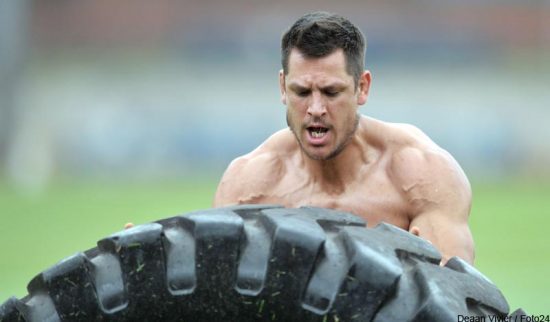
Related: Four Training Splits to Build an Athletic Body
7. Eat Healthy Fats
Fats are essential for athlete nutrition because they provide the body with long-lasting energy.
However, some types of fats can be unhealthy; trans fat is one example that should always be avoided when considering athlete diet plans. This type of fat has been shown to increase heart disease risk and decrease insulin sensitivity (meaning it will make you gain weight).
Instead, look for healthy fats like omega-three fatty acids and monounsaturated fat (found in olive oil). These types of athlete supplements can protect your heart health and help support the body’s cardiovascular system. Keep portions moderate though – if you eat too much fat at once it will get stored as excess calories!
Foods that are high in healthy fats include:
- Nuts
- Seeds
- Eggs
- Avocados
- Salmon
- Olive oil (and products that contain olive oil)
Related: How to Get an Athletic Body
8. Choose Slow Digesting Carbs
It is important to include slow-digesting carbs in athlete diet plans because you want your body to break down the food slowly and steadily release energy over a longer period of time.
This athlete diet plan will give you more consistent levels of energy and avoid blood sugar spikes (which can lead to overeating later on).
Slow-digesting carbs include whole grains, vegetables and fruit; these athlete supplements take much longer for your body to break down than simple carbohydrates like sugars. If you are going to eat foods with high glycemic index values be sure that they contain other nutritional components – such as fiber or protein – which will help slow digestion rates even further.
You should also look for athlete nutrition products that use sugar substitutes because the sweeteners themselves do not affect insulin levels in any way. This means there is no risk of them interfering with weight loss efforts either.
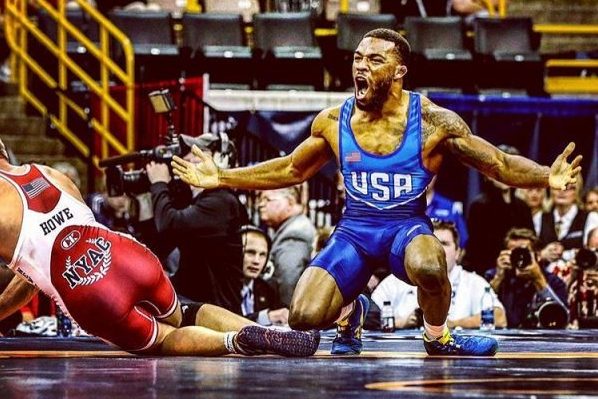
9. Eat Your Fruits and Veggies
Fruits and veggies are some of the healthiest athlete supplements on earth! These athlete food sources contain fiber which helps keep your digestive system moving, as well as antioxidants to promote cell growth and repair.
They also maintain healthy blood sugar levels by regulating insulin secretion – this is ideal for athletes because it keeps energy levels high without causing unnecessary weight gain or fatigue.
Always look for fresh fruits and vegetables that have not been processed; you can steam, bake or grill them easily at home instead of frying in unhealthy oils. If you need a quick snack idea just wash off an apple with water (no soap) then slice into pieces ready to go under athlete diet plans like these:
While eating right takes work sometimes it pays off in athlete gains!
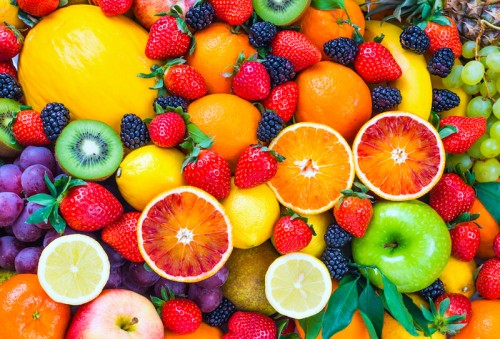
10. Cheat
Let’s face it, if you are eating the same healthy diet every day you are going to get bored and perhaps give in and say “it’s not worth it”. This is why you need to cheat from time to time, I would say once or twice a week. Get in a quick cheat get it out of your system and get back on track after.
Perhaps even more important than getting it out of your system is the fact that a cheat meal will throw your body a curveball. Your body gets used to eating healthy will start to adapt and start to slow your metabolism. This is why you need to cheat every few days just to throw your body a curveball so that is cant adjust and will keep the metabolism high.
Conclusion
If you’re trying to get an athletic body, we can help. We know that it sounds like a lot of work and takes time, but the result will be worth all your hard work. Get started today by following these ten nutrition rules. You may even find yourself living better than ever!
If you want an athletic body workout system to get build strength and athletic muscle then check out Ultimate Athleticism from fitness expert Max Shank. It is an awesome program that has everything you need to build a strong and athletic body.
Ryan Douglas

Ryan is a former college wrestler and lifelong fitness fanatic. He has run half marathons, done mud runs, placed in body transformation contests, coached wrestling, and now coaches girls’ soccer. Not to mention he has also tried literally hundreds of supplements over the years and has a vast and thorough supplement knowledge. He has written for Muscle & Strength, Testosterone Junkie, The Sport Review and other publications. He is also the editor-in-chief of this website and has over 25 years of experience in the fitness industry. Feel free to connect with him on his LinkedIn page below.
